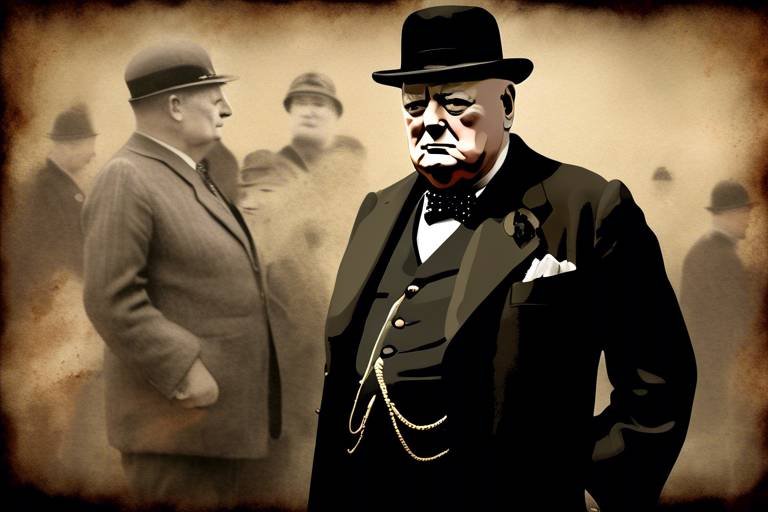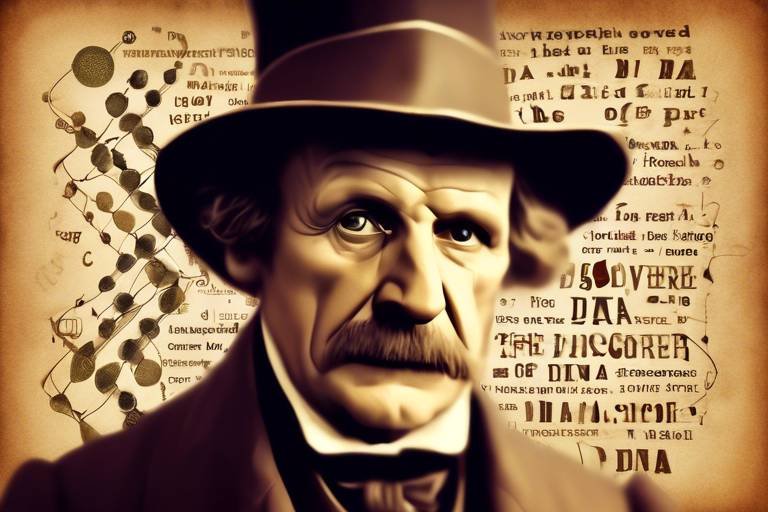Hippocrates: The Father of Medicine
Hippocrates, often referred to as the Father of Medicine, stands as a monumental figure in the history of healthcare and healing practices. His contributions have left an indelible mark on the field of medicine, shaping the way we understand and approach health and wellness today.
Living in ancient Greece, Hippocrates was not only a physician but also a philosopher who revolutionized medical practices through his keen observations, empirical approach, and dedication to the well-being of his patients. His teachings and principles continue to resonate through the corridors of medical institutions worldwide.
Delving into the life of Hippocrates unveils a man driven by a passion for healing and a commitment to the art of medicine. His early years were marked by a thirst for knowledge and a deep-rooted desire to alleviate the suffering of those in need. Through rigorous education and exposure to diverse medical traditions, he honed his skills and crafted a legacy that transcends time.
One of the most enduring legacies of Hippocrates is the Hippocratic Oath, a solemn pledge taken by physicians to uphold ethical standards and prioritize the well-being of their patients above all else. This code of conduct underscores the importance of compassion, integrity, and confidentiality in the practice of medicine, setting a benchmark for ethical behavior in the healthcare profession.
Central to Hippocrates' medical philosophy was the theory of the four humors, which posited that an imbalance of bodily fluids could lead to illness. This foundational concept guided his diagnostic methods and treatment approaches, emphasizing the holistic nature of health and the interconnectedness of the body and mind.
Throughout his career, Hippocrates championed the power of observation, believing that careful scrutiny of symptoms and patient history was essential for accurate diagnosis and effective treatment. His emphasis on empirical evidence and logical reasoning laid the groundwork for modern medical practices, shaping the way we approach healthcare today.
As we reflect on the enduring influence of Hippocrates, we recognize his profound impact on medical education, ethics, and the practice of evidence-based medicine. His teachings continue to inspire generations of healthcare practitioners, reminding us of the timeless principles of compassion, integrity, and dedication that lie at the heart of the healing profession.
In a world where medical ethics and patient care are paramount, the legacy of Hippocrates serves as a guiding light, illuminating the path towards ethical practice and compassionate healthcare. His teachings remind us of the sacred trust between physician and patient, emphasizing the importance of empathy, honesty, and respect in every interaction.
As we navigate the complexities of modern healthcare, we are reminded of the enduring wisdom of Hippocrates, whose insights continue to shape our understanding of health and healing. His legacy lives on in the hearts and minds of those dedicated to the noble pursuit of medicine, serving as a beacon of hope and healing for generations to come.
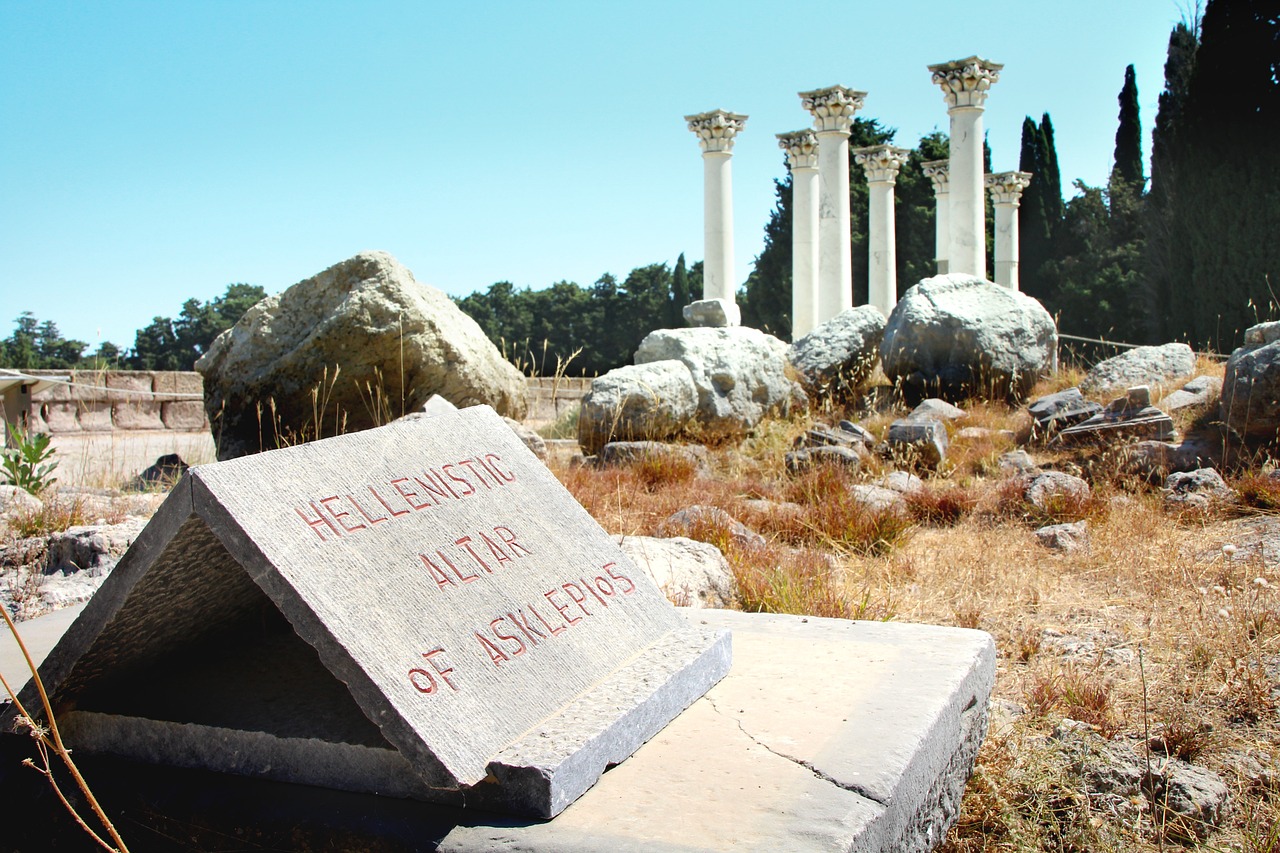
Early Life and Education
Hippocrates, widely regarded as the Father of Medicine, had a remarkable journey that shaped his illustrious career. Born in the ancient Greek city of Cos, Hippocrates grew up surrounded by a rich cultural tapestry that would later influence his medical beliefs and practices. His early life was marked by a thirst for knowledge and a keen interest in the healing arts, setting the foundation for his future contributions to the field of medicine.
As a young man, Hippocrates received a comprehensive education that encompassed various disciplines, including philosophy, natural sciences, and medicine. He studied under renowned scholars of his time, absorbing diverse perspectives and honing his analytical skills. This multidisciplinary approach to learning would become a hallmark of his medical philosophy, emphasizing the interconnectedness of the human body and the environment.
One of the defining aspects of Hippocrates' education was his exposure to the healing traditions of different cultures. Through his interactions with healers from various backgrounds, he gained valuable insights into the diverse practices and beliefs surrounding healthcare. This cross-cultural exchange played a pivotal role in shaping his holistic approach to medicine, which emphasized the importance of considering the individual as a whole entity rather than focusing solely on symptoms.
Moreover, Hippocrates' early experiences instilled in him a deep sense of empathy and compassion towards those suffering from illness. His exposure to the struggles of the sick and the marginalized fueled his commitment to providing quality care and seeking innovative solutions to medical challenges. This compassionate ethos would later find expression in his famous oath, which laid the ethical foundation for the practice of medicine.
In essence, Hippocrates' early life and education laid the groundwork for his groundbreaking contributions to the field of medicine. His diverse upbringing, rigorous training, and compassionate outlook paved the way for a revolutionary approach to healthcare that continues to inspire and guide medical practitioners to this day.

Hippocratic Oath
The stands as a cornerstone in the history of medicine, embodying the ethical principles and values that physicians uphold in their practice. Attributed to the ancient Greek physician Hippocrates, this oath outlines the responsibilities and obligations that healthcare providers pledge to fulfill in their care for patients. It emphasizes patient confidentiality, beneficence, and non-maleficence, setting a standard for the moral conduct of medical professionals.
Rooted in the concept of do no harm, the Hippocratic Oath underscores the importance of prioritizing the well-being of patients above all else. It guides physicians to approach their practice with integrity and compassion, fostering a relationship of trust and respect between healthcare providers and those under their care.
Furthermore, the oath highlights the commitment to lifelong learning and professional development, encouraging physicians to continuously strive for excellence in their knowledge and skills. By upholding the principles set forth in the Hippocratic Oath, healthcare professionals uphold the dignity and rights of their patients, promoting a standard of care that is grounded in ethics and humanity.
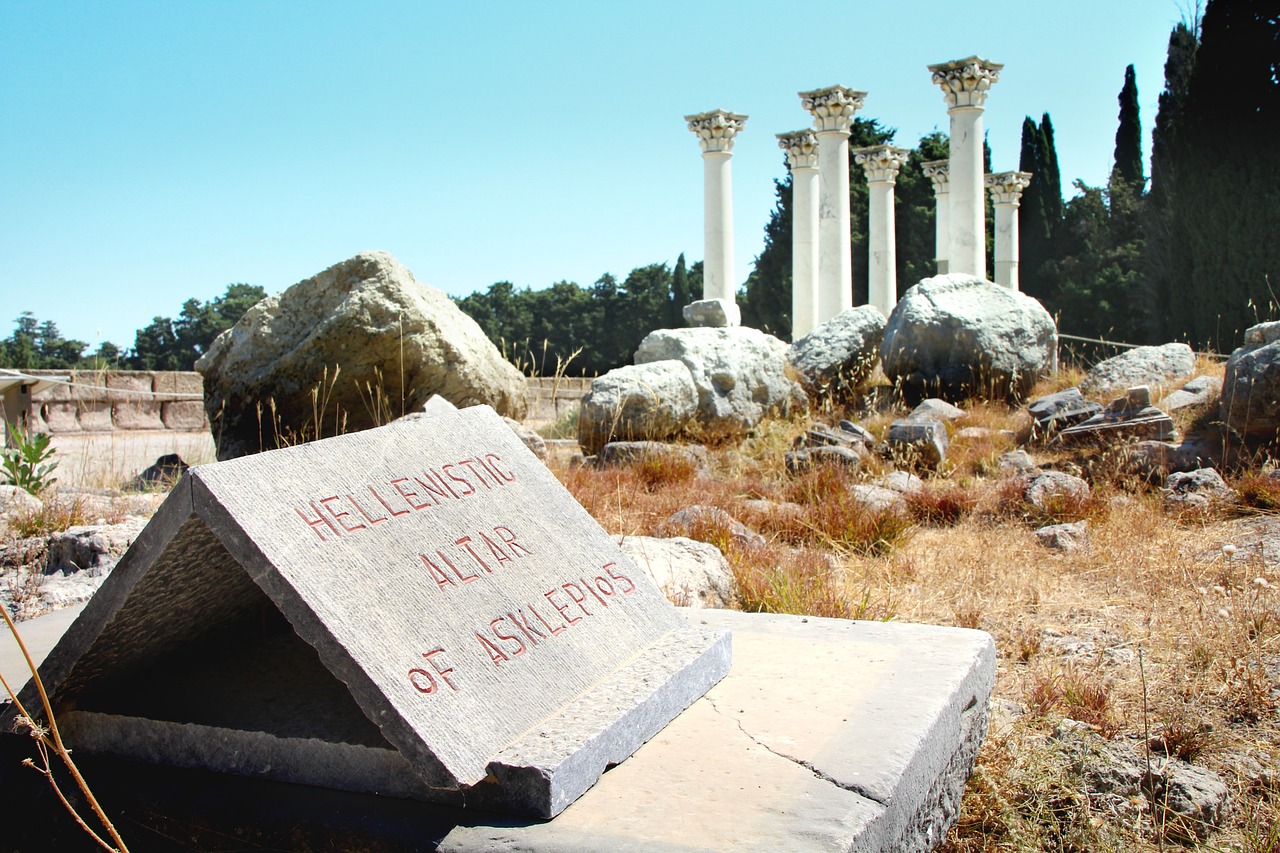
Four Humors Theory
The Four Humors Theory, attributed to Hippocrates, was a fundamental concept in ancient Greek medicine that influenced medical practices for centuries. According to this theory, the body was believed to be composed of four primary fluids or humors: blood, phlegm, yellow bile, and black bile. Each of these humors was associated with specific qualities and elements, and an imbalance among them was thought to lead to illness and disease.
Hippocrates proposed that maintaining a balance among the four humors was essential for good health. For instance, an excess of blood was thought to cause a sanguine temperament, while an excess of black bile was associated with melancholic traits. The theory suggested that the temperament and well-being of an individual were determined by the relative proportions of these bodily fluids.
Physicians following the Four Humors Theory would diagnose patients based on the dominant humor believed to be causing their symptoms. Treatment often involved restoring balance by removing or reducing the excess humor through methods such as bloodletting, purging, or dietary changes. The theory also influenced medical practices such as herbal remedies and lifestyle recommendations tailored to each individual's humor imbalance.
While the Four Humors Theory may seem outdated in the context of modern medicine, its impact on the history of healthcare is undeniable. It laid the groundwork for understanding the interconnectedness of bodily functions and the importance of balance in maintaining health. The theory's legacy can still be seen in some traditional medicine practices and historical medical texts, showcasing the enduring influence of Hippocrates' groundbreaking ideas.

Diagnostic Methods
When it comes to diagnostic methods, Hippocrates was a pioneer in the field of medicine, utilizing a range of observational techniques to assess and understand various illnesses. One of the key methods employed by Hippocrates was careful examination of a patient's symptoms and medical history to form a comprehensive picture of their condition. Through detailed questioning and observation, he aimed to uncover the underlying causes of diseases and develop personalized treatment plans.
In addition to patient interviews, Hippocrates also emphasized the importance of physical examinations as part of the diagnostic process. By closely observing bodily signs and symptoms, such as skin color, pulse rate, and overall appearance, he sought to identify patterns that could provide valuable insights into a patient's health status. This hands-on approach to diagnosis allowed Hippocrates to make informed decisions about treatment and care.
Furthermore, Hippocrates believed in the power of prognosis, the ability to predict the course of a disease based on careful observation and analysis. By closely monitoring the progression of illnesses and noting any changes in symptoms, he aimed to anticipate potential outcomes and tailor interventions accordingly. This forward-thinking approach to diagnosis set the foundation for modern medical practices and the importance of early detection and intervention.

Medical Treatments and Practices
When delving into the realm of medical treatments and practices advocated by Hippocrates, one encounters a holistic approach that emphasizes the interconnectedness of mind, body, and spirit. Hippocrates believed in the power of nature and the body's innate ability to heal itself, promoting treatments that aligned with the natural rhythms of life.
One of the cornerstone principles of Hippocratic medicine is the importance of diet in maintaining health and treating illnesses. Hippocrates famously stated, "Let food be thy medicine and medicine be thy food," highlighting the significance of nutrition in promoting overall well-being. He prescribed specific diets tailored to individual patients, recognizing the impact of food on both physical and mental health.
In addition to dietary interventions, Hippocrates valued the role of physical activity in maintaining health. He advocated for regular exercise as a means of preventing diseases and promoting longevity. Understanding the benefits of movement on the body's systems, Hippocrates incorporated physical fitness into his holistic approach to healthcare.
Furthermore, Hippocrates believed in the power of rest and relaxation in aiding the body's healing processes. He emphasized the importance of balance in life, recommending adequate sleep and stress management techniques to support overall health. By addressing the interconnected needs of the body and mind, Hippocrates aimed to treat the root causes of illnesses rather than just the symptoms.
Another key aspect of Hippocratic medicine is the concept of holistic healing, which considers the individual as a whole entity rather than focusing solely on specific symptoms or diseases. By taking into account the physical, emotional, and social aspects of a patient's life, Hippocrates sought to provide comprehensive care that addressed all facets of well-being.
Through his emphasis on preventative care, lifestyle modifications, and the healing power of nature, Hippocrates laid the foundation for modern holistic medicine practices. His approach continues to inspire healthcare professionals to consider the broader context of health and wellness, fostering a more integrated and patient-centered approach to medical treatments and practices.
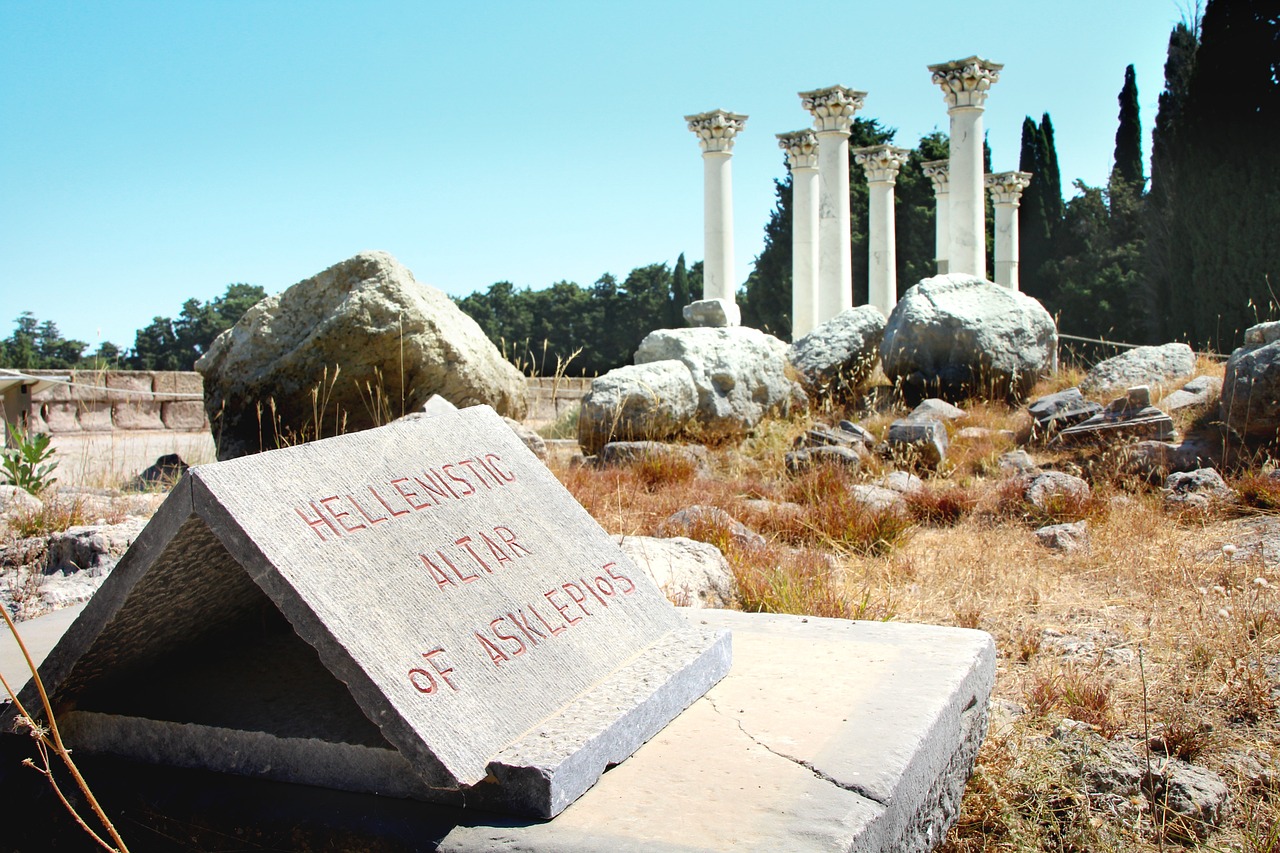
Importance of Observation
When delving into the realm of medicine and healthcare practices, one cannot overlook the paramount importance that observation holds in the diagnostic process. Hippocrates, the revered Father of Medicine, placed significant emphasis on the art of observation as a cornerstone of medical evaluation. Through keen observation of patients, their symptoms, and bodily signs, Hippocrates believed that one could unravel the mysteries of illness and pave the path towards effective treatment.
Imagine a physician in ancient Greece, meticulously studying the subtle changes in a patient's complexion, pulse, and demeanor to decipher the underlying cause of their ailment. This dedication to keen observation set Hippocrates apart as a pioneer in the field of medicine, laying the groundwork for modern diagnostic practices that continue to shape healthcare today.
By keenly observing patients, Hippocrates sought to uncover the subtle nuances that could hold the key to unlocking the mysteries of various illnesses. Much like a skilled detective piecing together clues to solve a complex case, Hippocrates understood that every detail mattered in the realm of medical diagnosis. This meticulous approach to observation not only allowed him to make accurate assessments but also highlighted the interconnectedness of symptoms and overall health.
Furthermore, Hippocrates believed that through careful observation, physicians could not only diagnose but also prevent illnesses by identifying early warning signs and risk factors. This proactive approach to healthcare underscored the importance of not only treating diseases but also promoting overall well-being and preventing future health issues.
In essence, the in medicine transcends time and remains a fundamental principle in the practice of healthcare. By honing their observational skills, healthcare providers can uncover vital information, establish accurate diagnoses, and provide tailored treatment plans that address the unique needs of each patient. As we navigate the complexities of modern healthcare, the legacy of Hippocrates reminds us that sometimes, the key to unlocking medical mysteries lies in the art of observation.
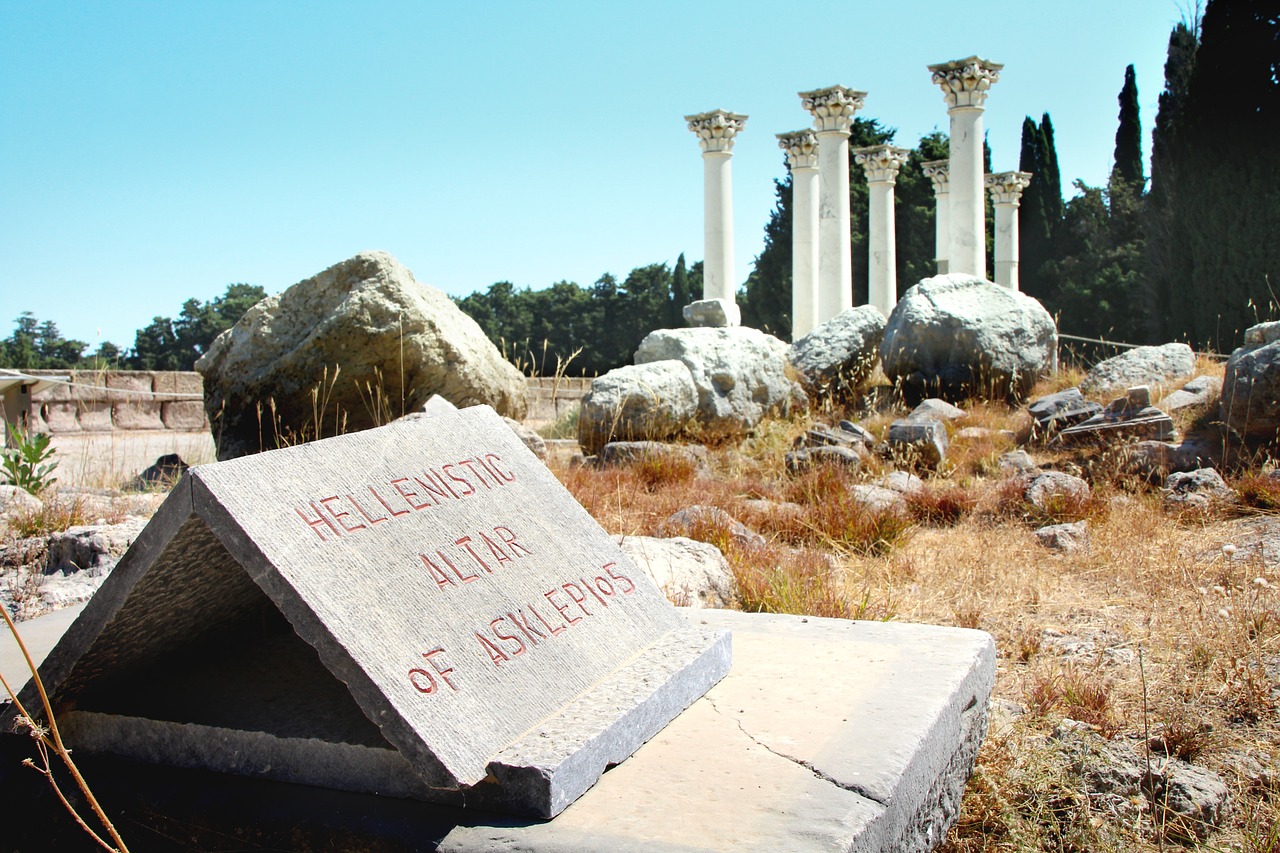
Legacy and Influence
As we delve into the legacy and influence of Hippocrates, it becomes evident that his impact on the field of medicine transcends time and continues to shape modern healthcare practices. Hippocrates' teachings and principles have left an indelible mark on medical education, ethics, and the approach to patient care.
One of the key aspects of Hippocrates' legacy is his emphasis on the importance of observation in medical practice. By carefully observing patients and their symptoms, he laid the foundation for accurate diagnoses and effective treatment plans. This focus on observation remains a cornerstone of medical practice today, highlighting the enduring relevance of Hippocrates' teachings.
Furthermore, Hippocrates' holistic approach to healing, which encompassed not only the physical but also the mental and emotional well-being of patients, has influenced contemporary concepts of integrative medicine. The idea that health is a balance of mind, body, and spirit resonates in modern healthcare practices that prioritize a comprehensive approach to patient care.
Moreover, Hippocrates' advocacy for medical ethics and the doctor-patient relationship continues to shape the ethical framework of healthcare. The principles outlined in the Hippocratic Oath, such as patient confidentiality, beneficence, and non-maleficence, serve as guiding principles for healthcare professionals, underscoring the enduring relevance of Hippocrates' ethical standards.
In conclusion, the legacy and influence of Hippocrates, the Father of Medicine, are profound and far-reaching. His contributions have not only laid the groundwork for modern medical practices but have also instilled a sense of ethical responsibility and compassion in healthcare professionals worldwide.
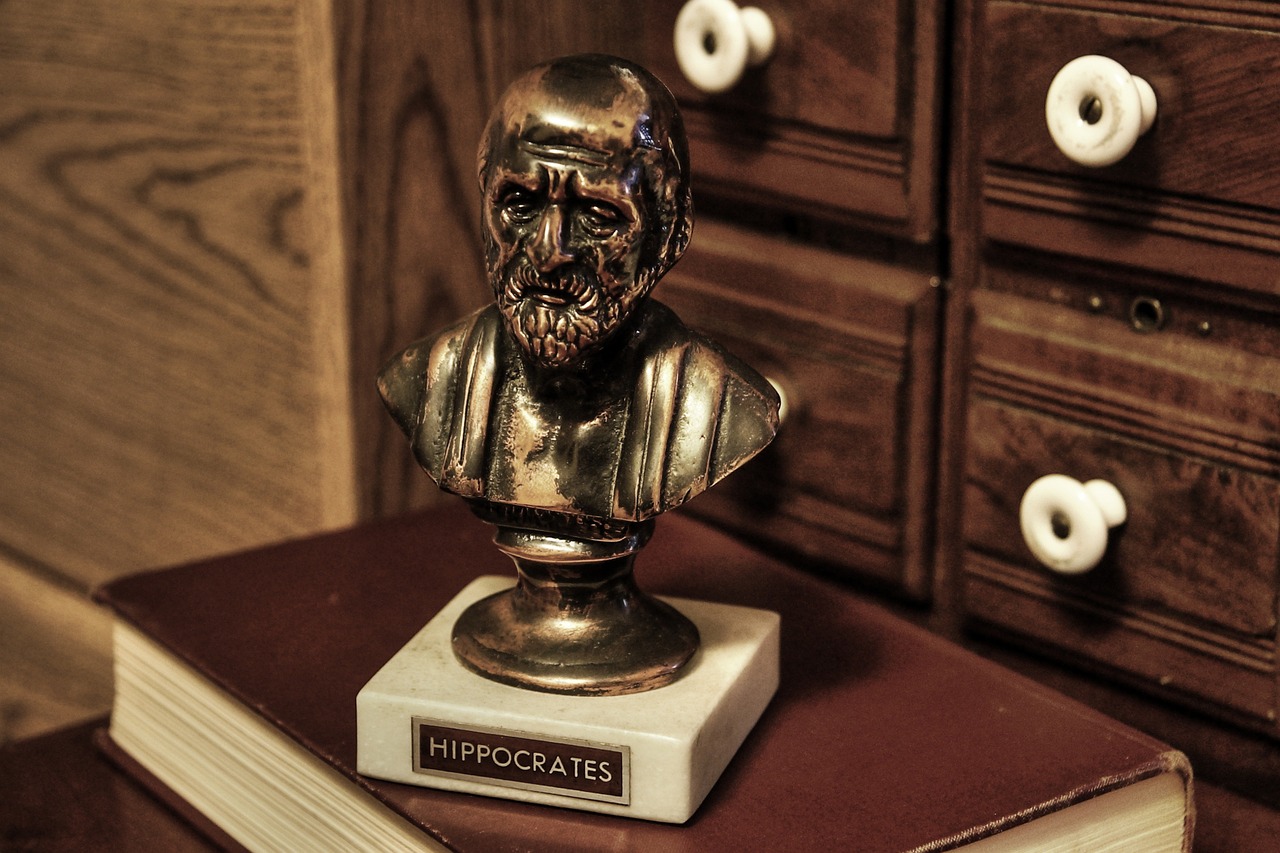
Modern Medical Ethics
Modern Medical Ethics encompasses a set of principles and values that guide healthcare professionals in their interactions with patients, colleagues, and society. Rooted in the teachings of Hippocrates, these ethical standards emphasize the importance of beneficence, non-maleficence, autonomy, and justice in medical practice. Physicians are expected to prioritize the well-being of their patients, uphold confidentiality, respect patient autonomy, and ensure fairness in the distribution of healthcare resources.
One key aspect of modern medical ethics is the concept of informed consent, where patients have the right to make decisions about their own healthcare based on relevant information provided by their healthcare providers. This principle underscores the importance of respecting patients' autonomy and involving them in the decision-making process regarding their treatment options.
Furthermore, medical ethics also address issues such as end-of-life care, organ donation, genetic testing, and the use of emerging technologies in healthcare. Healthcare professionals are required to navigate complex ethical dilemmas while upholding the values of integrity, honesty, and compassion in their practice.
In today's rapidly evolving healthcare landscape, the principles of modern medical ethics serve as a moral compass for healthcare providers, guiding their actions and decisions in the best interest of patients and society as a whole. By adhering to these ethical standards, healthcare professionals uphold the trust placed in them by patients and contribute to the delivery of high-quality, patient-centered care.
Frequently Asked Questions
- What is the significance of Hippocrates in the history of medicine?
Hippocrates is revered as the Father of Medicine for his pioneering contributions to the field. His emphasis on observation, ethical patient care, and holistic healing laid the foundation for modern medical practices.
- What is the Hippocratic Oath?
The Hippocratic Oath is a code of ethics for physicians, attributed to Hippocrates. It emphasizes principles such as confidentiality, beneficence, and non-maleficence, guiding doctors in their interactions with patients and the practice of medicine.
- How did Hippocrates influence modern medical ethics?
Hippocrates' emphasis on patient care, honesty, and professionalism set a standard for medical ethics that continues to influence healthcare today. The principles of the Hippocratic Oath form the basis of ethical guidelines in contemporary medicine.
- What is the Four Humors Theory?
The Four Humors Theory, proposed by Hippocrates, suggests that the body is governed by four bodily fluids: blood, phlegm, black bile, and yellow bile. The balance of these humors was believed to determine a person's health and temperament.
- How did Hippocrates approach medical diagnosis?
Hippocrates relied on careful observation of patient symptoms and bodily signs to make diagnoses. His diagnostic methods focused on understanding the body's natural processes and identifying the root causes of illness.


